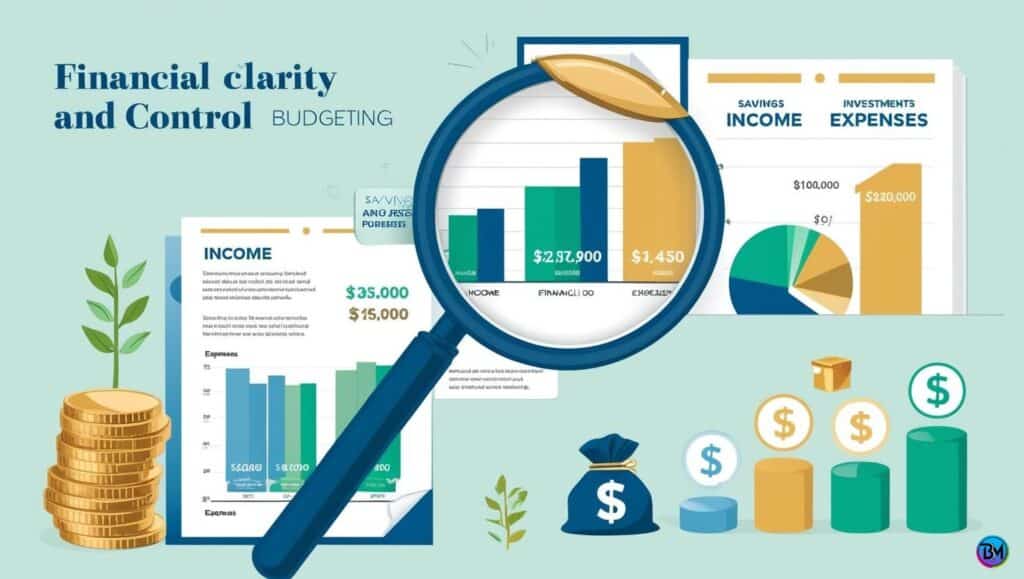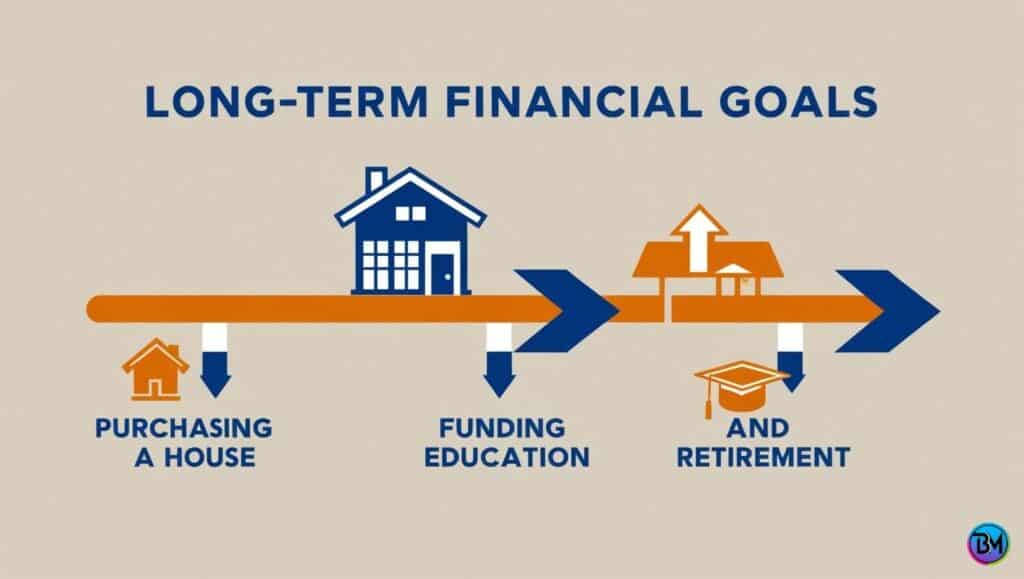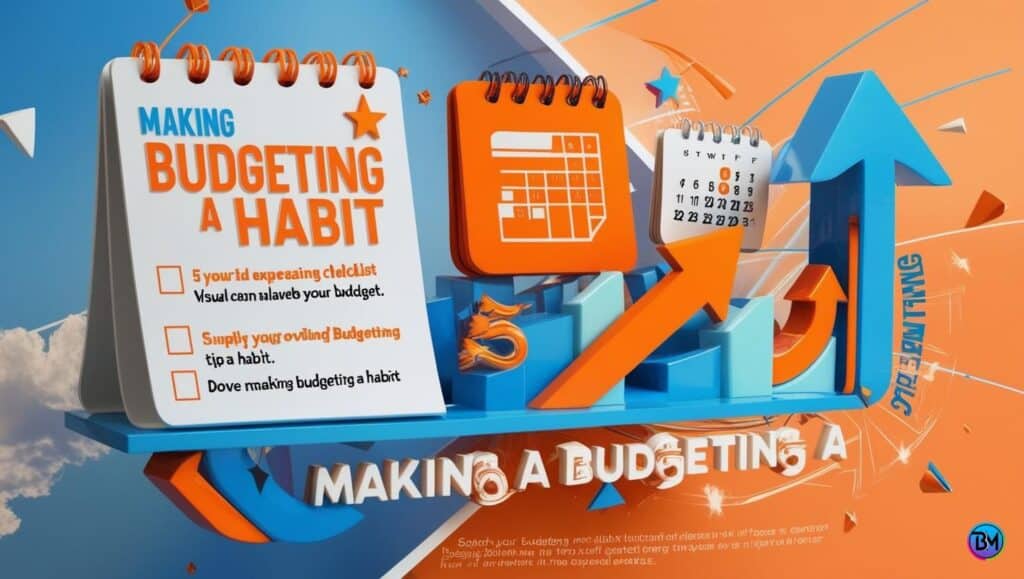In today’s fast-paced and financially complex world, understanding why it is worth the time and effort to create and fine-tune your budget and make budgeting a habit is more crucial than ever. Effective budgeting not only provides financial clarity but also paves the way for long-term financial success. This comprehensive guide explores the myriad benefits of budgeting, offering actionable insights on how to create a budget, fine-tune it, and turn budgeting into a consistent habit that can transform your financial landscape.
Achieving Financial Clarity and Control Through Budgeting
Creating and fine-tuning your budget provides unparalleled financial clarity and control. A well-structured budget offers a transparent view of your income, expenses, savings, and investments, enabling you to make informed financial decisions.

- Tracking Spending Habits: Budgeting allows you to monitor your spending patterns, helping you identify areas where you might be overspending.
- Setting Priorities: With a budget, you can prioritize essential expenses and allocate funds toward your financial goals, such as saving for a home, education, or retirement.
For more insights on how to create a budget, check out our Comprehensive Guide to Financial Planning.
💰 Budgeting Stats
Latest Research & Data
66%
Of Americans actively track their monthly spending
84%
Of budgeters report reaching their financial goals
73%
Use digital tools for budget management
89%
Report less financial stress with budgeting
- Financial Industry Reports
- Consumer Behavior Studies
- Banking Sector Analysis
- Personal Finance Surveys
Reducing Financial Stress with a Well-Structured Budget
Financial uncertainty is a significant source of stress for many people. By creating and maintaining a budget, you can alleviate this stress by having a clear plan to manage your finances effectively.
- Emergency Preparedness: A budget helps you build an emergency fund, providing a safety net for unexpected expenses like medical bills or car repairs.
- Debt Management: With a clear budget, you can develop a strategy to pay down debts systematically, reducing the burden of interest payments and improving your credit score.
According to a study by Investopedia, effective budgeting can significantly reduce financial stress.
Enhancing Savings and Investment Opportunities
Budgeting is a powerful tool for increasing your savings and investment potential. By allocating specific amounts toward savings each month, you can steadily build wealth over time.
- Automated Savings: Incorporating automated transfers into your budget ensures that a portion of your income is consistently saved without requiring constant attention.
- Investment Growth: With disciplined budgeting, you can allocate funds toward investments, taking advantage of compound interest and growing your wealth more effectively.
Supporting Long-Term Financial Goals
Whether you aim to buy a house, fund your children’s education, or retire comfortably, budgeting is essential for achieving these long-term objectives. A budget serves as a roadmap, guiding you toward your financial aspirations.

- Goal Setting: By defining your financial goals and incorporating them into your budget, you can create actionable steps to reach them.
- Progress Tracking: Regularly reviewing and adjusting your budget allows you to monitor your progress and stay motivated toward your goals.
Improving Spending Habits and Financial Discipline
Making budgeting a habit fosters better spending habits and financial discipline. It encourages mindful spending, helping you distinguish between wants and needs.
- Avoiding Impulse Purchases: A budget sets spending limits, reducing the likelihood of impulsive buys that can derail your financial plans.
- Mindful Decision-Making: Regular budgeting cultivates a habit of evaluating purchases carefully, ensuring that your spending aligns with your financial priorities.
Adapting to Life Change
Life is full of changes, such as job transitions, marriage, parenthood, or retirement. A flexible and regularly updated budget can help you navigate these changes smoothly.
- Financial Adaptability: By fine-tuning your budget to reflect your current circumstances, you can maintain financial stability during periods of transition.
- Proactive Planning: Anticipating potential life changes and adjusting your budget accordingly ensures that you are prepared for future financial challenges.
Enhancing Financial Literacy
The process of creating and maintaining a budget inherently improves your financial literacy. Understanding how to manage your finances effectively empowers you to make smarter financial decisions.
- Knowledge Building: Budgeting involves learning about income management, expense tracking, saving strategies, and investment options.
- Confidence Boost: Increased financial literacy boosts your confidence in handling money matters, reducing anxiety and uncertainty.
Facilitating Better Communication in Relationships
Financial matters are a common source of tension in relationships. A shared budget can improve communication and cooperation between partners, fostering a healthier financial partnership.

- Transparency: A budget ensures that both partners are aware of the household finances, promoting honesty and trust.
- Collaborative Goal Setting: Working together on a budget allows couples to align their financial goals and support each other in achieving them.
Maximizing Financial Efficiency
A budget helps you optimize how you use your money, ensuring that every dollar is working toward your financial goals.
- Resource Allocation: By clearly defining how funds are allocated, you can ensure that your money is used efficiently, minimizing waste.
- Cost Reduction: Identifying and eliminating unnecessary expenses frees up resources that can be redirected toward more meaningful financial objectives.
Building a Foundation for Financial Independence
Ultimately, budgeting is a critical step toward achieving financial independence. By taking control of your finances, you can reduce reliance on credit, increase your savings, and build wealth, paving the way for a secure and independent financial future.
- Debt-Free Living: Effective budgeting helps you eliminate debt, freeing up income for savings and investments.
- Wealth Accumulation: Consistent saving and investing, guided by a budget, lead to substantial wealth accumulation over time.
Making Budgeting a Habit: Tips for Success
To reap the full benefits of budgeting, it’s essential to make it a consistent habit. Here are some strategies to help you establish and maintain a budgeting routine:

- Set Clear Goals: Define your financial objectives to stay motivated and focused.
- Choose the Right Tools: Utilize budgeting apps or spreadsheets that suit your lifestyle and preferences.
- Regular Review: Schedule regular check-ins, such as weekly or monthly reviews, to assess and adjust your budget.
- Be Flexible: Life changes, and so should your budget. Adapt it as needed to reflect your current financial situation.
- Stay Committed: Consistency is key. Treat budgeting as a non-negotiable part of your financial routine.
💰 Budgeting FAQ
Conclusion
Understanding why it is worth the time and effort to create and fine-tune your budget and make budgeting a habit can significantly enhance your financial well-being. From achieving financial clarity and reducing stress to supporting long-term goals and building financial independence, the benefits of budgeting are profound and far-reaching. By following the strategies outlined in this guide and leveraging effective budgeting practices, you can transform your financial life, ensuring stability and prosperity for years to come.
Embrace budgeting as a vital component of your financial toolkit, and witness the positive impact it can have on your financial health and overall quality of life. Start today, stay committed, and make budgeting a lasting habit that leads to financial success.
💰 Financial Success
Master Your Money
Saving Money Motivation
Build wealth mindset 📈
Success Mindset
Financial psychology tips ⚡
Success Habits
Build winning routines 💪
Growth Resources
Financial wisdom books ✨













